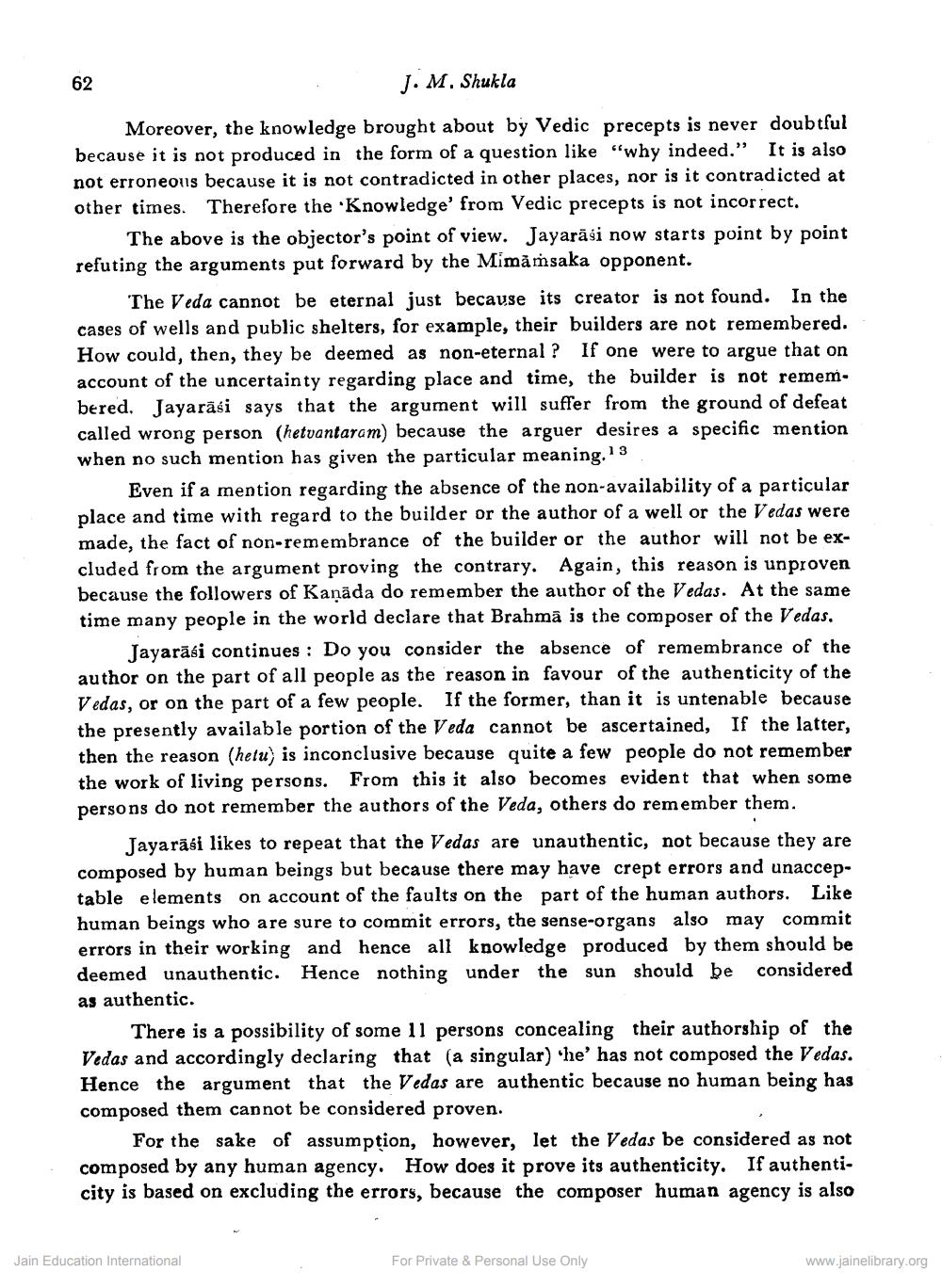Book Title: Jayarasi Criticism of Verbal Testimony Author(s): Jaydev M Shukla Publisher: Z_Aspect_of_Jainology_Part_2_Pundit_Bechardas_Doshi_012016.pdf View full book textPage 6
________________ 62 J. M. Shukla precepts is never doubtful Moreover, the knowledge brought about by Vedic because it is not produced in the form of a question like "why indeed." not erroneous because it is not contradicted in other places, nor is it contradicted at other times. Therefore the Knowledge' from Vedic precepts is not incorrect. The above is the objector's point of view. Jayarasi now starts point by point refuting the arguments put forward by the Mimämsaka opponent. The Veda cannot be eternal just because its creator is not found. In the cases of wells and public shelters, for example, their builders are not remembered. How could, then, they be deemed as non-eternal? If one were to argue that on account of the uncertainty regarding place and time, the builder is not remem bered. Jayarasi says that the argument will suffer from the ground of defeat called wrong person (hetvantarem) because the arguer desires a specific mention when no such mention has given the particular meaning.13 Even if a mention regarding the absence of the non-availability of a particular place and time with regard to the builder or the author of a well or the Vedas were made, the fact of non-remembrance of the builder or the author will not be excluded from the argument proving the contrary. Again, this reason is unproven because the followers of Kanāda do remember the author of the Vedas. At the same time many people in the world declare that Brahma is the composer of the Vedas. Jayarasi continues: Do you consider the absence of remembrance of the author on the part of all people as the reason in favour of the authenticity of the Vedas, or on the part of a few people. If the former, than it is untenable because the presently available portion of the Veda cannot be ascertained, If the latter, then the reason (hetu) is inconclusive because quite a few people do not remember the work of living persons. From this it also becomes evident that when some persons do not remember the authors of the Veda, others do remember them. Jayarasi likes to repeat that the Vedas are unauthentic, not because they are composed by human beings but because there may have crept errors and unacceptable elements on account of the faults on the part of the human authors. Like human beings who are sure to commit errors, the sense-organs also may commit errors in their working and hence all knowledge produced by them should be deemed unauthentic. Hence nothing under the sun should be considered as authentic. There is a possibility of some 11 persons concealing their authorship of the Vedas and accordingly declaring that (a singular) 'he' has not composed the Vedas. Hence the argument that the Vedas are authentic because no human being has composed them cannot be considered proven. For the sake of assumption, however, let the Vedas be considered as not composed by any human agency. How does it prove its authenticity. If authenticity is based on excluding the errors, because the composer human agency is also Jain Education International For Private & Personal Use Only www.jainelibrary.orgPage Navigation
1 ... 4 5 6 7 8 9 10 11 12 13
